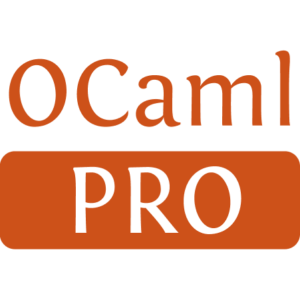molencversion
Molecular encoder/featurizer using rdkit and OCaml
Chemical fingerprints are lossy encodings of molecules. molenc allows to encode molecules using unfolded and counted fingerprints (i.e. potentially very long, but sparse, integer vectors).
Currently, Faulon fingerprints are supported. In the future, atom pair fingerprints might be added. Currently, atom types are the quadruplet (#pi-electrons, element symbol, #HA neighbors, formal charge). In the future, pharmacophore features might be supported (a more abstract/fuzzy atom typing scheme). In the future, the stereo-chemistry information that can be encoded into SMILES strings might be taken into account.
Bibliography:
Carhart, R. E., Smith, D. H., & Venkataraghavan, R. (1985). Atom pairs as molecular features in structure-activity studies: definition and applications. Journal of Chemical Information and Computer Sciences, 25(2), 64-73.
Kearsley, S. K., Sallamack, S., Fluder, E. M., Andose, J. D., Mosley, R. T., & Sheridan, R. P. (1996). Chemical similarity using physiochemical property descriptors. Journal of Chemical Information and Computer Sciences, 36(1), 118-127.
Faulon, J. L., Visco, D. P., & Pophale, R. S. (2003). The signature molecular descriptor. 1. Using extended valence sequences in QSAR and QSPR studies. Journal of chemical information and computer sciences, 43(3), 707-720.
OpenSMILES specification. Craig A. James et. al. v1.0 2016-05-15. http://opensmiles.org/opensmiles.html
| Author | Francois Berenger |
|---|---|
| License | BSD-3-Clause |
| Published | |
| Homepage | https://github.com/UnixJunkie/molenc |
| Issue Tracker | https://github.com/UnixJunkie/molenc/issues |
| Maintainer | unixjunkie@sdf.org |
| Dependencies | |
| Source [http] | https://github.com/UnixJunkie/molenc/archive/v0.0.1.tar.gz sha256=bc1c12eae7f335ae90868f8e0ff5c42a876385ac09170d41ee6714b4434e68a8 md5=9de5d3bb892267d5d2fb913532cb1d59 |
| Edit | https://github.com/ocaml/opam-repository/tree/master/packages/molenc/molenc.0.0.1/opam |



